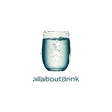No, dogs should not drink salt water. Even small amounts can cause dehydration, vomiting, and salt poisoning (hypernatremia). Always offer fresh water instead.
Why Salt Water Is Dangerous for Dogs
Many pet owners wonder, can dogs drink salt water safely while playing at the beach? The short answer is no — salt water can be harmful and even toxic to dogs. When a dog drinks ocean water, the high sodium concentration pulls water out of their body’s cells, leading to dehydration and salt imbalance. This process, known as hypernatremia in dogs, can cause vomiting, diarrhea, and severe lethargy.
Salt water doesn’t just upset your dog’s stomach — it disrupts their natural fluid balance and can affect the nervous system if too much is consumed. Dogs that spend time in the sea often swallow small amounts while swimming, which may seem harmless but can add up quickly. To keep your dog safe and hydrated, always carry plenty of fresh drinking water and offer regular breaks from salty environments.
What Happens If a Dog Drinks Salt Water?
If a dog drinks salt water, it can trigger a condition called salt poisoning or salt water toxicosis. The excess sodium causes the body’s cells to release water to balance salt levels, leading to dehydration, vomiting, diarrhea, and weakness. In severe cases, dogs may experience tremors, confusion, or seizures due to disrupted electrolyte levels. Even a few gulps of ocean or sea water can make your dog sick, especially if they’re small or already dehydrated.
Once symptoms appear, they can progress quickly. That’s why it’s crucial to monitor your dog closely after beach play and offer fresh, clean water instead of letting them drink from the sea. If your dog shows signs of salt toxicity, seek veterinary attention immediately.

Symptoms of Salt Water Poisoning in Dogs
Recognizing the symptoms of salt water poisoning in dogs early can save your pet’s life. Common signs include vomiting, diarrhea, excessive thirst, drooling, and lack of coordination. As sodium levels rise, dogs may develop muscle tremors, confusion, or even seizures. In advanced cases, salt toxicity can cause kidney damage, brain swelling, or coma if untreated.
You might also notice your dog becoming unusually tired or restless after swimming at the beach — an early warning of hypernatremia in dogs. Since symptoms can appear within a few hours, prompt action is essential. Offer fresh water immediately and contact your vet for emergency care. Quick treatment helps restore electrolyte balance and prevents serious complications from salt poisoning.
What to Do If Your Dog Drinks Salt Water
If your dog drinks salt water, act fast. First, remove them from the beach and give small sips of fresh, clean water to start flushing out the excess salt. Avoid letting them drink too much at once, as it can worsen vomiting or dehydration. Watch for signs like lethargy, diarrhea, or tremors, which may indicate salt water poisoning.
If symptoms develop, contact your veterinarian immediately — they may need IV fluids to correct electrolyte imbalances. Never wait for symptoms to worsen; early treatment prevents complications like seizures or organ failure. Prevention is always best — keep a water bowl handy during beach outings.
How to Prevent Salt Water Poisoning in Dogs
Preventing salt water poisoning in dogs starts with preparation. Always bring a portable bowl and plenty of fresh water when heading to the beach. Offer frequent breaks so your dog doesn’t drink from the sea out of thirst. Limit swimming time, especially for smaller dogs that can accidentally swallow more water while playing.
After beach visits, rinse your dog’s coat to remove salt residue that could irritate their skin if they lick it later. Be alert for signs of dehydration like dry gums or excessive panting. It’s also smart to train your dog with the command “leave it” to stop them from lapping at ocean water. A few simple precautions can keep beach days safe, fun, and salt-free for your dog.

Safe Hydration Alternatives for Dogs
When spending time outdoors, the best way to keep your dog hydrated is with fresh, clean water. Always pack a collapsible bowl and offer water breaks every 20–30 minutes. You can also mix a small amount of low-sodium chicken broth or add ice cubes to make the water more appealing on hot days. For extra hydration support, try dog-safe electrolyte solutions designed to restore minerals lost through activity or heat.
Avoid giving sports drinks or flavored waters — many contain additives unsafe for pets. Keeping your dog properly hydrated not only prevents salt toxicity but also supports healthy digestion and body temperature regulation.
When to Call the Vet
Call your veterinarian immediately if your dog shows any signs of salt water poisoning, such as vomiting, diarrhea, tremors, or unusual fatigue. Even mild symptoms can worsen quickly as sodium levels rise in the bloodstream. A vet can perform blood tests to confirm hypernatremia and provide treatment like IV fluids to restore hydration and balance electrolytes.
If your dog has swallowed large amounts of ocean or seawater, don’t wait for symptoms to appear — seek emergency veterinary care right away. Quick action can prevent serious complications such as kidney failure or seizures, helping your pet recover safely from salt toxicity.
FAQs About Dogs and Salt Water
1. Can dogs drink salt water safely?
No, dogs should never drink salt water. Even small amounts can lead to dehydration or salt poisoning.
2. What happens if my dog drinks a little ocean water?
A few laps might not cause immediate harm, but monitor for vomiting, diarrhea, or lethargy — these are early signs of salt toxicity.
3. How long after drinking salt water do symptoms appear?
Symptoms typically show within a few hours, depending on how much water was ingested.
4. Can salt water kill a dog?
Yes, severe hypernatremia can cause seizures, organ failure, or death if left untreated.
5. How can I prevent this?
Bring fresh water, take breaks, and keep your dog from drinking ocean water.





